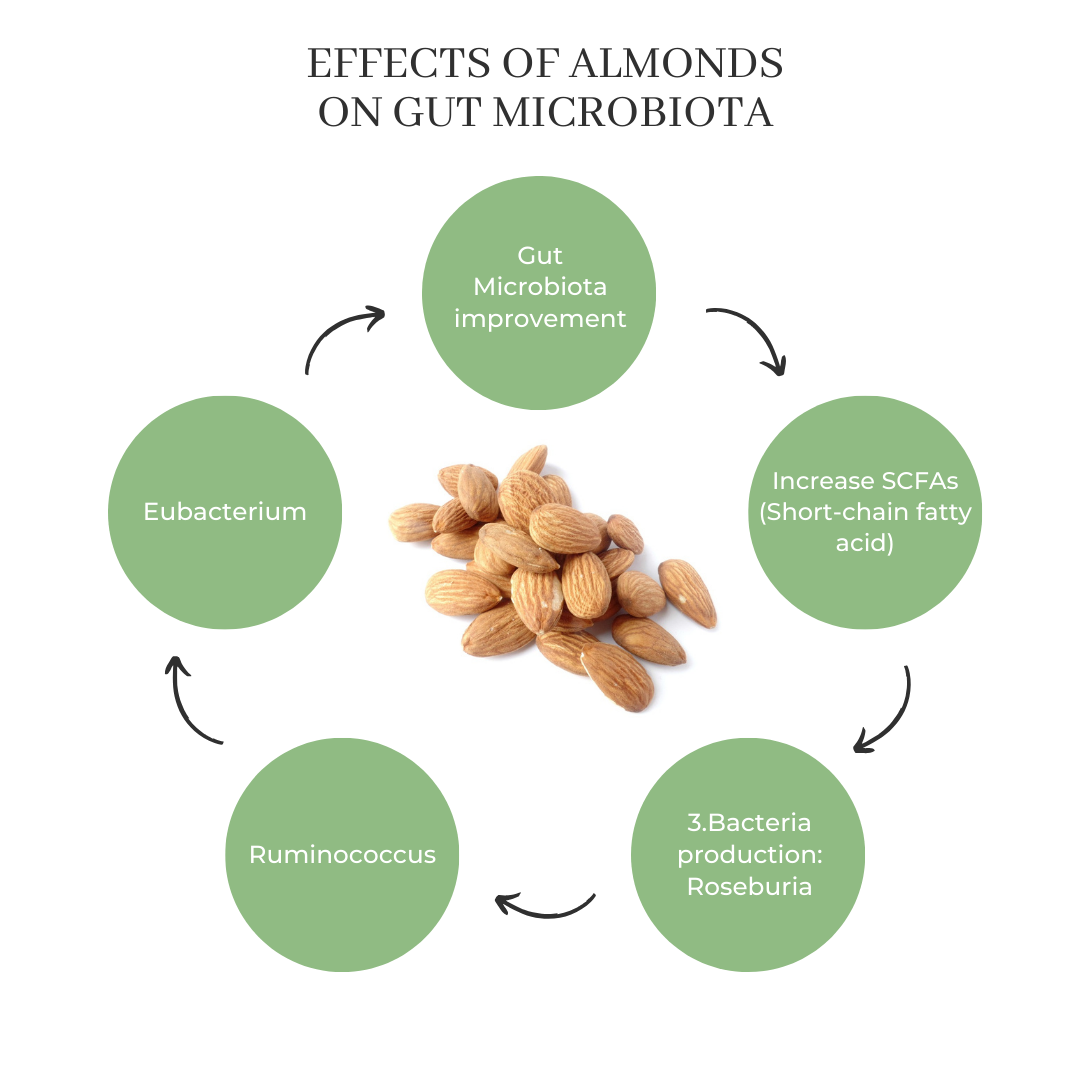Effects of Almonds on Gut Microbiota

Roasted almonds, fried, raw, soaked, almond milk, dressings with almonds, cakes made with almond flour—there are so many ways to consume them. We know that almonds are delicious, we know they have many health benefits, but we know very little about their effect on the intestinal microbiota.
The effects of almonds on gut microbiota are not clear, an study* founded that an almond-based low-carbohydrate diet (LCD) significantly increased the short-chain fatty acid (SCFA) producing bacteria Roseburia, Ruminococcus, and Eubacterium.
In particular, the LCD group in the study had a significantly higher population of Roseburia compared with the low-fat diet (LFD) group by the third month. And compared with the baseline, Eubacterium and Roseburia increased significantly, and Bacteroidesdecreased in the almond-based LCD group.

Prebiotic Content: Almonds contain dietary fiber, specifically soluble fiber, which acts as a prebiotic. Prebiotics are compounds that are not digested by the human body but serve as food for beneficial probiotic bacteria in the gut. These bacteria then ferment the prebiotics, producing short-chain fatty acids (SCFAs) that promote gut health.
Promoting Beneficial Bacteria: The prebiotic fibers in almonds, such as inulin, can selectively stimulate the growth and activity of beneficial bacteria like Bifidobacteria and Lactobacilli. These bacteria play a crucial role in maintaining a balanced and healthy gut microbiota.
Antioxidant Properties: Almonds are rich in antioxidants, including vitamin E and polyphenols. These compounds help reduce oxidative stress in the gut, creating an environment that is conducive to the growth of beneficial bacteria.
Regulating Bowel Movements: The fiber in almonds adds bulk to the stool and can help regulate bowel movements. This is important for preventing constipation and promoting a healthy digestive system.
Source:
Ojo, O., Wang, X. H., Ojo, O. O., & Adegboye, A. R. A. (2021). The Effects of Almonds on Gut Microbiota, Glycometabolism, and Inflammatory Markers in Patients with Type 2 Diabetes: A Systematic Review and Meta-Analysis of Randomised Controlled Trials. Nutrients, 13(10), 3377. https://doi.org/10.3390/nu13103377
More about Almonds...
Tree Nuts Snacks vs High Carb Snacks

